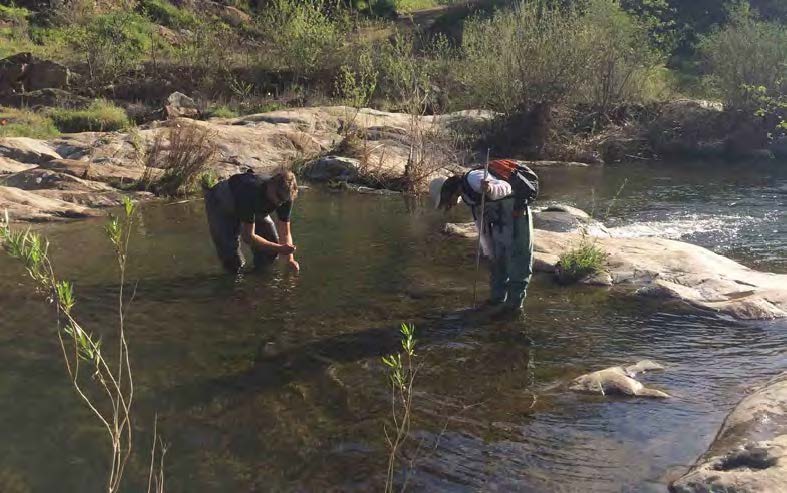Agreement reached on DNA processing, analysis methods for stream food webs study

The technical advisory group for a study examining how ecological stress alters the complexity and interconnectedness of stream food webs has reached agreement on the DNA processing and analysis methods that will be used during the study.
At an October meeting, the advisory group refined the draft study methods proposed by SCCWRP and its partners. The three-year study, which began this year, will use advanced computational approaches to analyze the food-web relationships among bacteria, algae and metazoan invertebrate communities.
The study’s goal is to build a more holistic, integrated understanding of stream ecosystem function. Although benthic invertebrates and algae already have been adapted to serve as biological indicators of stream condition, researchers hope to begin using bacterial community structure as a tool to discern subtle changes in stream health.
More news related to: Bioassessment, DNA Barcoding